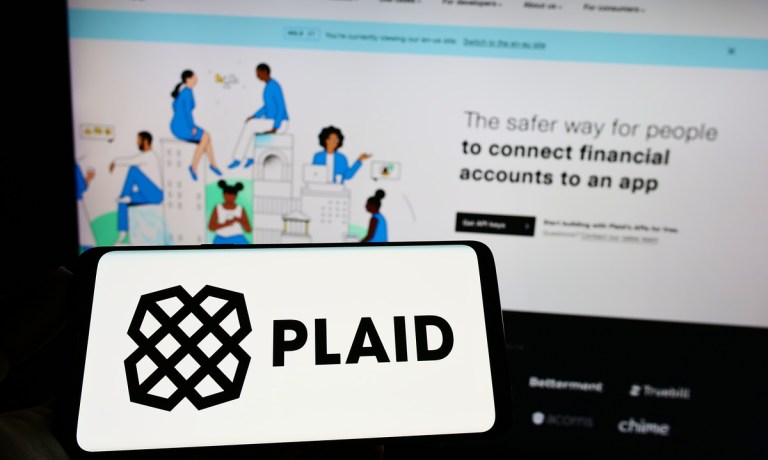Plaid Launches Tool for Cash Flow Underwriting

To make it easier for lenders to access real-time cash flow data, the FinTech Plaid has introduced a new hosted experience for its flagship product Plaid Link.
The fully hosted, on-demand experience allows lenders to access consumer-permissioned cash flow data through Plaid during their underwriting process and to determine whether an applicant’s cash flow is sufficient to qualify for a loan or credit product.
In a company blog post Thursday (June 15), Michelle Boros, product lead at Plaid, expressed optimism about the solution’s potential, noting that it “provides lenders with the ability to more easily embed Plaid Link into their user journey so that they can start using cash flow data in underwriting.”
Plaid has also partnered with Prism Data to offer smarter credit decisions through tools like its CashScore and Insights products, therefore “making it simple for lenders to make better credit decisions, faster, using Prism and Plaid,” said Erin Allard, general manager at Prism Data.
Additionally, Plaid has partnered with Credit Builders Alliance (CBA) on a pilot program to help lenders access alternative data and provide consumers with better credit options.
Plaid’s Assets API lets lenders verify cash flow data, such as information about a borrower’s identity, assets, balances, and up to two years of transaction history from their bank account.
Earlier this month, PYMNTS reported that financial services platform Stripe has unveiled a new charge program for its commercial card-issuing product.
“Whether a small business is just starting out or looking to expand, access to capital can make all the difference,” Denise Ho, head of product for Stripe’s banking-as-a-service (BaaS) business, said in a news release. “Our new charge card allows FinTechs and SaaS [software-as-a-service] platforms to provide access to a reliable source of credit for the many small businesses they work with.”
The solution was in response to results gathered from a Stripe survey which showed that 77% of small- to medium-sized businesses (SMBs) are worried about access to funding, a figure corroborated by PYMNTS research on SMBs.
A PYMNTS report published in April revealed that more than 50% of SMBs rely on credit or other loans, including personal mortgages, to keep their businesses afloat.
“Credit has already been drying up in the wake of the collapses of Silicon Valley Bank and other regional banks as 9% of SMBs report more problems securing their last loan than in previous attempts,” PYMNTS wrote at the time.